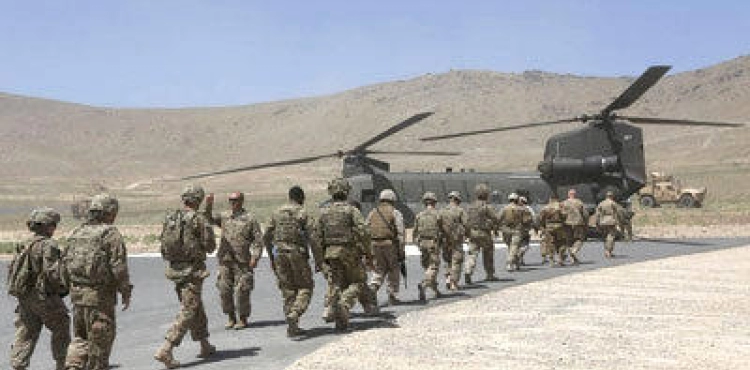A US official said on Wednesday that the military withdrawal from Afghanistan will take place well ahead of schedule, while President Donald Trump repeated his call to the Pentagon to return American forces to their homes.
These developments come at a time when questions arise about the next stage of the long war in Afghanistan, with the end of a three-day ceasefire and an anxious waiting for the return of violence.
Under an agreement signed by the United States with the Taliban in February, the Pentagon should reduce its forces from about 12,000 to 8,600 troops by mid-July, before withdrawing all forces by May 2021. But a senior Pentagon official said, The number of troops is already around 7,500, as commanders look to accelerate the withdrawal due to concerns related to the Covid-19 pandemic.
"The withdrawal was accelerated due to the precautions associated with Covid-19," the official told AFP, noting that priority should be given to leaving anyone with health troubles or older than a specific age group.
And Tuesday, Trump told reporters that many US forces "have now fallen to seven thousand."
Then, the next day, he returned to the repeated complaint that his country should not behave as a "police force" in Afghanistan.
"After 19 years, it is time for them (Afghans) to be the police of their country," Trump wrote on Twitter.
"They returned our soldiers to their homes, but watch closely what is happening, and strike like thunder like never before, if necessary!" Pentagon spokesman Lieutenant-Colonel Thomas Campbell said in a statement that the United States is committed to its agreement with the Taliban. He added that any additional withdrawal of troops will take place "after the US government assesses the security environment and the Taliban´s compliance with the agreement."
Afghanistan is witnessing a rare break from violence in the 19-year-old war, after the Taliban called for a truce on the occasion of Eid Al-Fitr.
But the historic ceasefire, only the second of its kind since the war began, ended on Wednesday, while the Taliban did not answer calls to renew it.
No clash was recorded on Tuesday night, Wednesday, and the day continued in the same way. Four days ago, Afghanistan witnessed a cessation of hostilities and a significant decline in the level of violence.
The Afghan government has said that it will continue to release Taliban prisoners under the United States´ agreement with the insurgency, and considers this a key to starting long-awaited Afghan-Afghan peace talks.
On Tuesday, the Afghan authorities released about a thousand Taliban prisoners, most of them from Bagram base, as part of their pledge to release 2,000 rebels in response to the armistice launched by the armed jihadist movement.
On Wednesday, a senior Taliban member told AFP that the rebels were planning in return to release between 50 and 100 Afghan security personnel early Thursday.
Senior Afghan officials called on the Taliban to extend the ceasefire.
"If the Taliban are ready to extend the ceasefire, we are ready to continue the ceasefire as well," National Security Council spokesman Javed Faisal said on Tuesday.
He added that the future of talks with the rebels "depends on the Taliban´s next step."
In a surprise move, the insurgents, who have been intensifying for weeks, bloody attacks on Afghan forces, unilaterally announced Saturday the cessation of hostilities so that citizens can "celebrate the peace and tranquility" of Eid al-Fitr.
The ceasefire has raised hopes for a longer armistice that paves the way for peace talks between the jihadi movement and the Afghan government.
President Ashraf Ghani agreed to this offer immediately, and announced Sunday that "up to two thousand Taliban prisoners will be released in a goodwill initiative," according to his spokesman, Siddiq Siddiqui.
These prisoner exchanges - five thousand Taliban fighters for a thousand Afghan forces - are stipulated in an agreement between Washington and the Taliban signed on February 29 in Doha without ratification by Kabul.
Before the ceasefire, Kabul had released about 1,000 prisoners, while the rebels had released about 300 prisoners.
The agreement also provides for the withdrawal of foreign forces from Afghanistan in a 14-month process, provided that the insurgents honor security obligations and start negotiations with the Afghan authorities on the country´s future.












